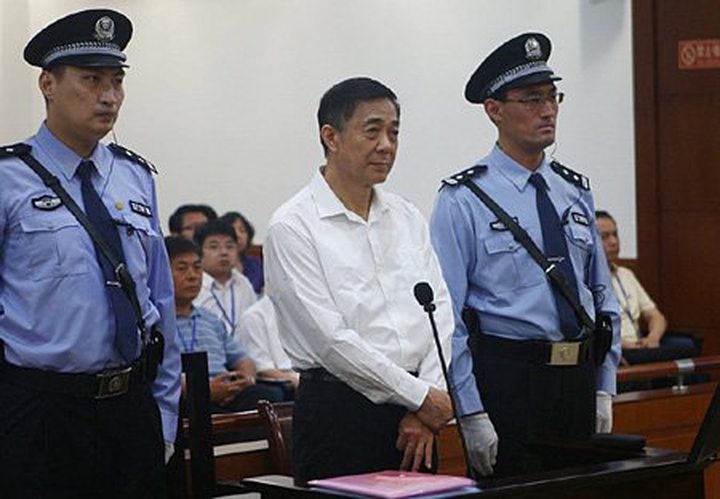China's Political Show Trial Exposes Dalian Tycoon. Can His Company Survive?

The criminal trial of Bo Xilai that opened Thursday in China marks the final stage of his political purge. Inevitably there is collateral damage from such purges, usually among allies and abetters, less so high-ranking protectors. Wealthy businesspeople caught in the dragnet are acutely aware of their own vulnerability. One such figure is Xu Ming, a 42-year-old tycoon whose rise tracked Bo’s political career in Dalian, the port city that he ran until 2000 before ascending to the next political rung. Xu was detained last spring, not long after Bo was taken into custody, and is awaiting his own trial, though no charges have been filed against Xu. Bo, the scion of a famous Communist clan, is accused of corruption and abuse of power; his wife and former police chief have already been convicted in connection to the murder of Neil Heywood, a British consultant.
Today’s proceedings in Jinan Intermediate People’s Court are another step towards Xu’s denouement. In Bo’s indictment, Xu was named as one of the businessmen in Dalian who funnelled millions of dollars in bribes to Bo and his family in return for political favours. The beneficiary was Xu’s conglomerate Dalian Shide, which has interests in chemicals, real-estate and insurance. In 2011, FORBES estimated Xu’s net worth at $690 million, down from his 2006 peak of $1 billion. Bo wasn’t the only focus of Xu’s flattery: The New York Times reports that Xu wormed his way into the family of former premier Wen Jiabao. The report states that Xu was highly attentive to the families of senior officials, including Wen’s, and dated Wen’s daughter. Previous reports have claimed that Xu bankrolled Bo’s son Guagua, who studied at Harrow, Oxford and Harvard.
What did Xu get in return? Access to power and privileges in a state-directed economy. In Dalian, his company grew fat on public-works contracts and got licenses to expand into new businesses. Xu was probably best known as the owner of China’s top football club, Dalian Shide FC, which dominated the national league in the 2000s. Xu took over as club chairman in 2000 when it was put up for sale by Wang Jianlin, the real-estate developer whose Wanda Group also got its start in Dalian. Wang, whose net worth FORBES put last year at $8.6 billion, was also an ally of Bo in Dalian but wasn’t implicated in his downfall. In 2009 Xu reportedly tried to sell Dalian Shide FC at a reported valuation of RMB600 million ($98 million), but didn’t find a buyer. A rival Dalian club tried to acquire it in 2012 but the merger collapsed and the club had to shut its doors.
In addition to Xu, Bo is accused of taking $180,000 from businessman Tang Xiaolin via an obscure Hong Kong-registered company. In comments carried on the court’s official microblog, Bo told the court that he didn’t receive money from Tang, but made no attempt to rebut the charges concerning Xu, who gave far greater amounts to Bo and his family. The indictment named Tang as the general manager of Dalian International Development Co. A representative of the company in Hong Kong denied any knowledge of Tang. “He probably worked at the company a long time ago,” she said. Asked for details about the company’s business interests, she hung up.
Xu joins a long line of Chinese tycoon-felons, most of them convicted for “economic crimes”. Given that Chinese tycoons’ wealth are tracked closely by FORBES, their downfall has been dubbed the ‘Forbes Curse‘. Actually the real curse is arguably the concentration of power in the hands of capricious party elites, whose official salaries don’t match their aspirations. Still, the poppies that grow tallest do get felled first, and that means business leaders are always on their toes, which is the point. The party wants to thwart the rise of an independent, assertive business class. Some tycoons are content to play along and rake in their takings; others bristle at the idea that businesspeople should have no political voice.
As for Dalian Shide, the conglomerate that Xu built, its outlook is uncertain. After Xu’s arrest, it issued a public statement denying that it was facing bankruptcy after Chinese media reported that banks had called in loans. Its website still lists Xu as chairman and he remains its legal representative. Calls to the company for clarification went unanswered Thursday. Xu’s brother Xu Bin is vice chairman and appears to be the new face of the company. The firm’s plastics division recently signed a cooperation agreement with German chemicals giant BASF . In China, it’s not unknown for jailed tycoons to run their companies via proxies such as family members. Huang Guangyu, the former chairman of Gome Electrical Appliances who was convicted in 2010 of insider trading and bribery, still exerts influence over Gome, where his sister is a director. Huang’s wife received a suspended sentence for her role in the fraud. Xu may be hoping for a lenient sentence that allows him to pull off the same trick. His high-level political allies could still ride to the rescue. But don’t bet on it.





